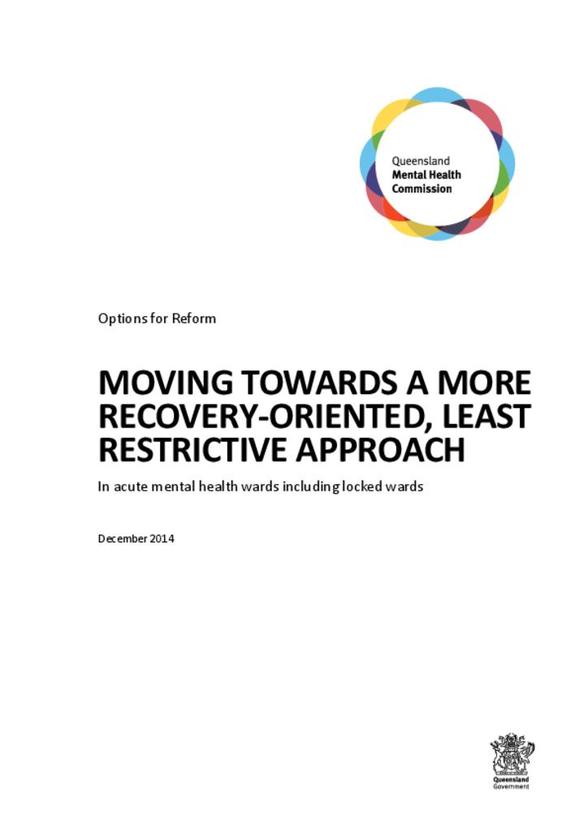Options for Reform: Moving towards a more recovery-oriented, least restrictive approach in acute mental health wards, including locked wards, December 2014
A cornerstone of recovery-‐oriented practice is the recognition that people requiring care and treatment for their mental illness are provided with care in as least restrictive manner as possible.
Recovery-‐oriented mental health service delivery is defined by A National Framework for recovery-‐oriented mental health services: Guide for practitioners and providers as the ‘application of sets of capabilities that support people to recognise and take responsibility for their own recovery and wellbeing and to define their goals, wishes and aspirations.’
Least restrictive practices form an essential foundation to a recovery-‐oriented approach. Implementing least restrictive practices has been accepted internationally and nationally as best practice. The World Health Organisation’s Mental Health Care Law: Ten Basic Principles include the provision of least restrictive practices and indicate that institution-‐based treatments should be provided in the least restrictive environment.
Queensland, like all other Australian States and Territories, enshrined commitments to implementing least restrictive practices in their legislation and has been working towards a recovery-‐oriented approach, and implementing least restrictive practices in its mental health wards.
Few policies adopt a ‘whole-‐of-‐ward’ approach to least restrictive practices or recovery-‐oriented services. Of particular note is the lack of practical recommendations in the literature for least restrictive care in acute mental health units.
This report outlines options for reform to support recovery-‐oriented practice and the implementation of least restrictive practices in acute mental health wards, with a particular focus on the role of locked wards. It sets out evidence-‐informed reforms which aim to strengthen recovery-‐oriented approaches and least restrictive practices under three areas:
-
supportive relationships
-
organisational culture
-
monitoring and review of recovery-‐oriented practice.
The report sets out 15 options for reform to enhance recovery-‐ oriented, least restrictive approaches in acute mental health wards in Queensland.

